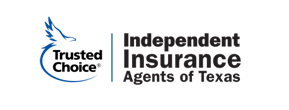Health Insurance
Health insurance is a type of insurance coverage that provides financial protection to individuals or groups against the costs of medical and healthcare expenses. Health insurance policies help policyholders manage and cover the expenses associated with medical care, including doctor visits, hospital stays, prescription medications, preventive services, and other healthcare needs. This insurance is designed to alleviate the financial burden of medical expenses and ensure access to necessary healthcare services.
Key features of health insurance include:
-
Premium: The amount paid by the policyholder at regular intervals (such as monthly) to maintain the health insurance coverage. Premiums vary based on factors such as coverage level, age, location, and the insurance provider.
-
Deductible: The amount the policyholder must pay out of pocket before the insurance coverage kicks in. Higher deductibles often result in lower premium costs.
-
Coinsurance: A percentage of the healthcare costs that the policyholder is responsible for paying after reaching the deductible. The insurance company covers the remaining percentage.
-
Copayment (Copay): A fixed amount that the policyholder pays for specific medical services or prescriptions, often at the time of the visit or purchase.
-
Out-of-Pocket Maximum/Limit: The maximum amount the policyholder is required to pay in a policy year. Once this limit is reached, the insurance company typically covers 100% of eligible medical expenses.
-
Network: The group of healthcare providers (doctors, hospitals, clinics, etc.) that have a contract with the insurance company to provide services at negotiated rates. Staying within the network often results in lower out-of-pocket costs for policyholders.
-
Preventive Care: Many health insurance plans cover certain preventive services, such as vaccinations, screenings, and wellness visits, at no cost to the policyholder.
-
Prescription Drug Coverage: Health insurance plans may include coverage for prescription medications, with different tiers and costs for different drugs.
-
Specialty Care: Some health insurance plans offer coverage for specialized medical care, such as mental health services, dental care, vision care, and more.
-
Emergency Care: Health insurance typically covers emergency medical care and hospitalization, even if the treatment is received out of network.
Health insurance can be obtained through various sources, including employers, government programs (like Medicare and Medicaid), private insurance companies, and the health insurance marketplace. The type of health insurance plan chosen will determine the extent of coverage, the network of healthcare providers, and the costs associated with healthcare services.
Having health insurance is important for accessing medical care without incurring significant financial hardships. It helps individuals and families manage unexpected medical expenses and promotes regular preventive care, which can contribute to better overall health and well-being.
Casualty Insurance
In addition to regular health insurance, casualty insurance policies may offer additional protection from occupational or recreational hazards and other accidents.
We also consult on the following casualty insurance policies:
- Accidental death and dismemberment insurance
- Occupational accident insurance
- Sports and recreational insurance
- Flight insurance






